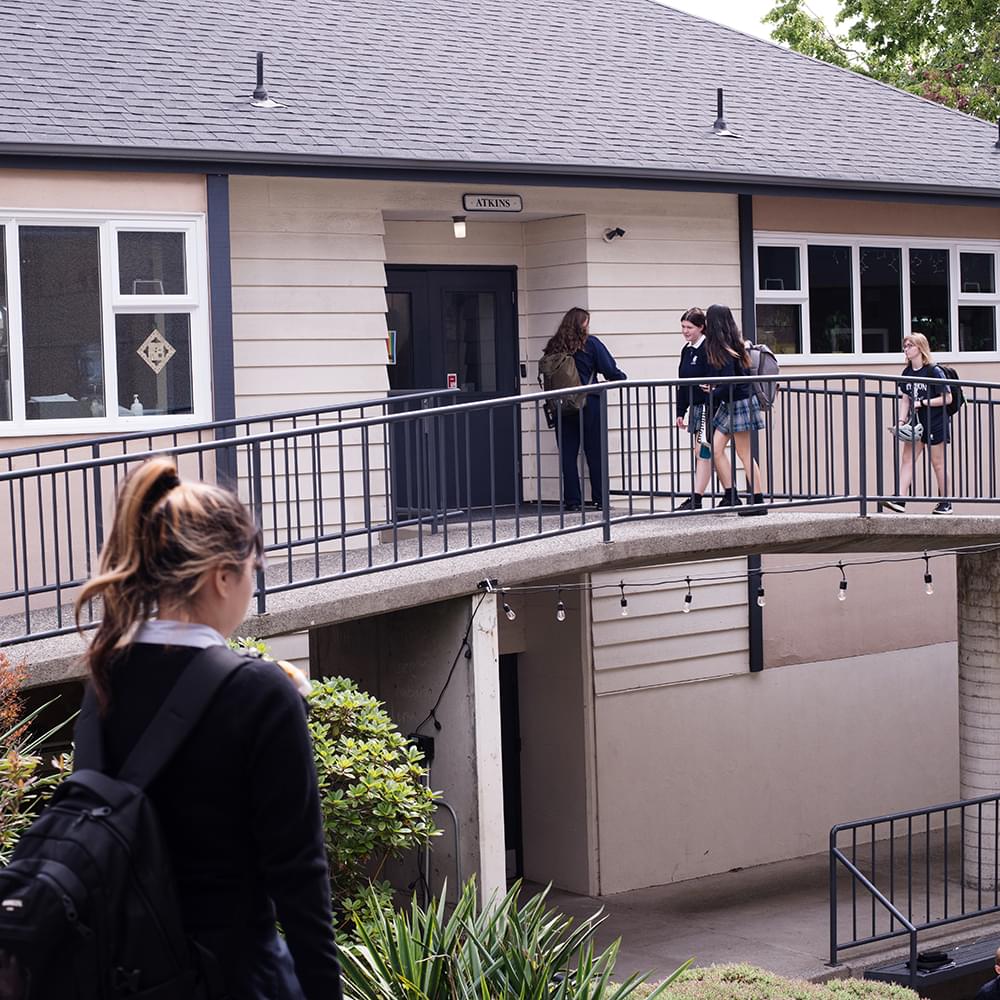In this instalment in the series of articles exploring what it is like to be an IB Diploma Candidate at GNS, some Grade 10 students have put forward a few questions that they have about the IB Diploma. To answer these questions, we spoke to GNS alumni, Tara Golonka ’21 and Gaby Girard ’19 as well as some students who are currently going through the IB Diploma Programme.
Is there a lot more homework in the DP than the MYP?
Compared to the MYP, there is a lot more homework in the DP. In MYP, each class meets three times each week, However, in the Diploma Programme, HL courses meet seven times over a two-week period, and SL classes meet five times. One important difference for Diploma courses is that the final exams at the end of the Grade 12 year are based on the content learned over the two years of study (Grade 11 and 12), rather than the one-year course for MYP.
The intense homework load comes from the breadth and the depth that the DP curriculum covers. It is recommended that for the HL courses, students choose courses that they have a passion for, especially since HL material is equivalent to first-year university material.
How do different universities view the DP?
Often, the deciding factor between taking the full DP or being a course candidate depends on the student’s post-secondary goals.
“It varies by university, but overall universities tend to look very favourably at IB DP applicants,” said Tara.
Gaby was a full DP student (SL: Chemistry, Math, French; HL: Theatre, English, History) and is also graduating from Dalhousie University this year (2023) with a Combined Honours Degree in Acting and Cinema and Media Studies with a Certification in Dance and Movement.
“The DP is looked at differently depending on the university but also the program you wish to go into. For me, Dalhousie converted my higher-level DP courses into university equivalents and that helped me meet several graduation requirements right off the bat. In my program specifically, my IB theatre classes at GNS helped quite a bit as I was learning things that gave me a sort of advantage. For example, in IB Theatre you create a 15-minute devised piece of theatre and that experience in high school helped me greatly when last year (my third year) my program worked on a fully devised show. It varies between universities so just check in with the university guidance. They know so so much.”
What are the benefits of completing the Diploma Programme?
As a full DP student, alumni Tara Golonka ’21 replied, “It is a globally recognized programme usually considered to be the most rigorous which prepares you well for university. The time-management skills you learn and the depth and breadth of knowledge you gain make the transition to university much easier than taking the provincial program.”
Gaby emphasizes the skills that going through the DP will give students, “I think there are a ton. Most people say time management is number one which is true. I would say the biggest benefit is the work you do. The papers, and the amount of work, really give a small glimpse of what university will be like while being fully supported by teachers. It can be a lot at times I won’t lie, but when you take the final exams it is really empowering to sit through all the papers and realize how much you know and have learned and how much your problem-solving skills have grown. (My Extended Essay is still my baby and one of my favourite papers I’ve ever written!)”
What is the most important advice you would give to students who are planning on taking the DP?
Along with being a high academic achiever, Tara was also heavily involved with co-curricular activities such as Round Square and various sports, both in and out of school. It is important to remember that universities do not just consider a student’s academic achievements as part of the admissions process. They also look at their co-curricular activities. She shares her secret on how to keep balanced and on top of classwork, “Be organized and efficient with your time and make sure to keep up with course material. Also, stay involved in co-curriculars and try to be well-rounded in general.”
Gaby shares the wisdom she gained from her experience, and it applies to much of the stress that current DP students face.
“I am a firm believer that giving advice only helps 50%. The other 50% you need to just experience the things yourself, so just go for it. However, my biggest piece of advice is to not take the DP excessively seriously and look at the program as an opportunity to succeed, fail, laugh, and cry in a safe and supported place. Learning how we overcome failure and how we humble ourselves when we succeed I think is most important. I’ve seen it a lot. Students study and study and get so focused on getting the best grades to get into the best universities, which is important. However, learning to balance that with the reality that in 10 years you won’t really remember doing that math assignment is important. Also, talk to Mme Girard and university guidance. They have so much information and are so supportive no matter what path (DP or Provincial) you take they have a ton of experience and can help a lot. (Sorry for the mini TedTalk.)”
Charlotte Quin ’24, a full IB Diploma student, gives this piece of advice, “If I had a tip for my classmates, it would be to speak with others about their classes and assignments. It helps us stay on top of things and sometimes we miss information that our friends didn’t and vice-versa. The IB programme is rigorous and it is nice to have a community of like-minded people who we can talk with and help each other.”
The current Grade 12s emphasize the importance of using the support network around you and time management, especially in the undertaking of assignments as long and intense as the Extended Essay.
Are you able to receive university credits from the Diploma Programme? And if so, how?
“Yes, depending on your final grade,” shares Tara Golonka ’21. “Transfer credit requirements vary by university though. I think most universities automatically give you the credits you are eligible for when they receive your transcript.”
Gaby’s skill in the fine arts has allowed her to transfer credits from her HL courses.
“Yes I received 6 first-year theatre credits, 6 first-year English credits, and 6 first-year history credits and from TOK I received 6 second-year philosophy credits,” she explains. “I did this through Mme Girard.”
What should students consider when choosing their SL and HL courses?
“Definitely consider what program you want to pursue after graduating and what you are most interested in. It is also good to research what universities look for to be admitted to your ideal program,” advised Tara.
“When choosing your HL and SL courses, first talk to your teachers and ask what the difference is. Then, if you know what program in university you are going into I would pick the HLs that pertain to your program the most,” says Gaby. “So for myself, I was going into the arts so my HLs were Theatre, English and History. You can only get university credits for the HL courses so keep that in mind.”
The Pemberton Woods Campus Program of Studies 2022/2023 provides examples of course pathways. For example, a Fine Arts and Humanities pathway would include the three HL IB courses of IB Theatre, IB Literature A, and IB History, the three SL IB courses of IB Math: Analysis & Approaches (SL), IB Environmental Systems & Societies (SL), and IB French B (SL)., Career Life Connections, on top of the IB Core of ToK, CAS, and an IB EE related to the Arts.
GNS provides many resources to help students understand the DP, and they can be found in Blackbaud, under the Resources tab or the Course Selection tab. The most important and valuable resources, however, are the experiences of teachers and your older peers. Stay tuned for the next article in this installment which will be looking at the grading system in the DP.





